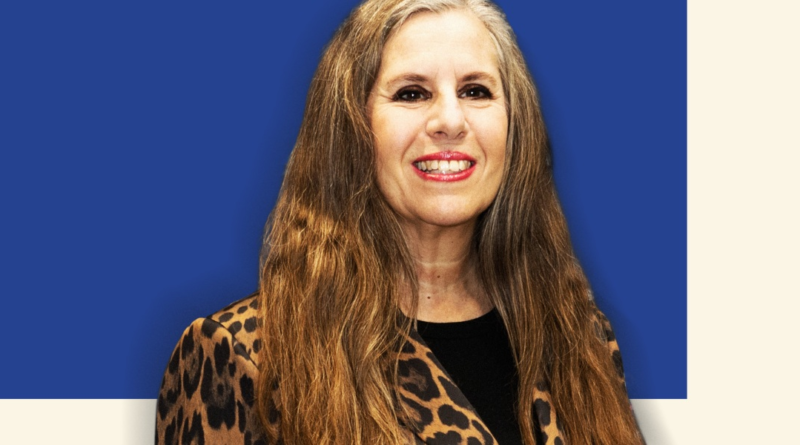The lessons Britain's only blind CEO learned about leadership from losing her sight in her 40s
The rare degenerative disease causes the cells in the retina to break down slowly over time, causing vision loss.
“They told me I was going to go blind in my forties,” she revealed to Fortune. “I was just not emotionally mature enough to really understand what that meant – so I just put it into a box and sealed it.”
And put her diagnosis aside, she did.
Wassmer forged a high-flying career and worked her way up to COO of NBCUniversal’s Sky Sci-Fi (formerly, Sci Fi Channel and Syfy), before founding her own digital agency, Copious.
In 2008, the doctor’s prognosis came true and as predicted, Wassmer was registered as blind in her forties.
Despite being given the heads up decades prior, she felt ill-prepared – not so much on not being able to see, but more on how she would be seen.
“I did not know how to cope with the label of disabled,” she said. “I did not know how to cope with how people suddenly started to look down on me, as I was a lesser human being.”
“Discriminative” encounter ignited a spark
As a result, she started having to navigate discrimination – and so did her business.
She recalls on one occasion, losing a pitch that was in the bag, after turning up to the final meeting with a walking cane: “I heard through the grapevine that the client had said: ‘Why the f**** do I want my website designed by a blind person?’”
As the person running the company, Wassmer wouldn’t have been designing the website anyway, even if she had her sight – but the “discriminative” encounter ignited a spark in her.
She went on to shift Copious’ focus to more accessible and inclusive designs which soon became its USP before closing the business (despite turning over around $1 million) to seek more purpose-driven work in 2014.
This led her to senior roles at various charities like Royal National Institute of Blind People (RNIB) and Jewish Care, before taking the helm at Employers Network for Equality & Inclusion in 2020.
Today, Wassmer is the only blind female CEO in Britain. She tells Fortune, what she learned about leadership throughout her unique journey.
There’s an art to delegating
Wassmer swiftly learned that there were things she could no longer do as a leader, like reading emails. Still, that didn’t stop her from trying to tackle these tasks head-on.
“When I lost my sight I was trying to do everything myself and be super independent,” she recalls. Unsurprisingly, it was to no avail and she wound up just getting “frustrated and annoyed” by the things she couldn’t do or see.
Feeling the need to shoulder everything is a common leadership struggle – especially among founders. But it wasn’t until Wassmer lost her eyesight that she gave herself permission to delegate.
“Now I just say, hey, can I borrow your eyes?” she says while adding, “you have to be in control of your dependencies because there’s no way you can do it all yourself.”
And there’s an art to delegating, without seemingly palming off work to your team.
“Every person you delegate to is different because they all have different needs, they’re at different stages of their career, and they have different levels of confidence in their work. So you’ve got to really be able to do that properly,” Wassmer advises.
It’s why she maintains that she does it in a “supporting and nurturing way”, for example, by ensuring that “the instructions are clear and the strategy is clear. So that when they are delegated to, they have everything around them to be successful.”
“If you delegate without those things, you’re just abdicating,” she warns.
Inclusion starts with you
“I don’t want to be the only blind female in the UK, I want there to be tons of us,” Wassmer laments.
Really, society is a long way off from having a pool of leaders that look like Wassmer.
In Britain, around 75% of blind or partially sighted people of working age are unemployed. In contrast, around the same percentage of the general working-age population is employed, and so are around 50% of disabled people.
“Blind and partially sighted people are just too far from the labor market – and if they’re in the labor market, they’re not in senior jobs,” Wassmer comments. “It’s a pipeline issue. But I want to fix that.”
As well as going beyond her day job to do charity work and mentor other professionals who have lost their sight, Wassmer has herself become a “far better, far more compassionate, far more empathic kind of person”.
Her experience of going blind, opened her eyes to the judgemental world that many other people with disabilities face and changed how she leads.
Before she says she would be the person she thought other people wanted her to be. “Now I’m just me.”
“It makes me immensely flawed as a human being. But it makes me a much better leader,” she adds.
“Because I’m authentic, open and I listen, I get a sense of trust and loyalty that is above and beyond anything I’ve ever experienced before.”
Being unapologetically herself has also given permission for Wassmer’s workers to follow suit. “It gives people lots of space to fail, to pick themselves up, to grow – it’s fantastic,” she says.
“That’s my job as a leader, to support people to shine”.

